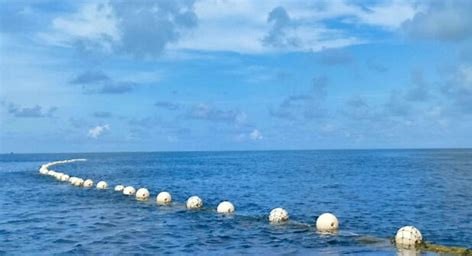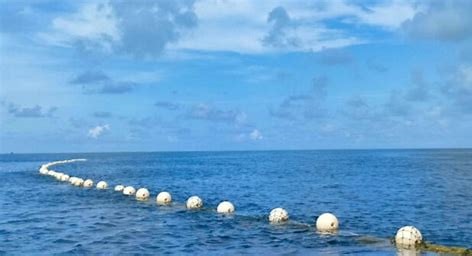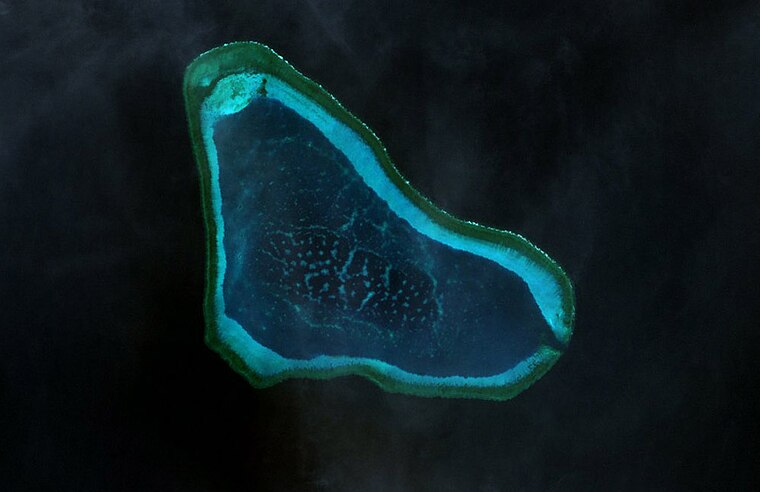
The Chinese Coast Guard has reinstalled floating barriers at Panatag Shoal, also known as Scarborough Shoal, in the West Philippine Sea. This action reportedly aims to prevent Filipino fishermen from entering the area, as confirmed by Commodore Jay Tarriela, spokesperson for the Philippine Coast Guard (PCG) on West Philippine Sea issues.
The barriers were installed early Monday morning, with two maritime militia vessels assisting. At the time of installation, 26 Filipino fishing boats were nearby. According to Commodore Tarriela, the Philippine Coast Guard and the Bureau of Fisheries and Aquatic Resources (BFAR) are increasing patrols to safeguard Filipino fishermen and uphold their access to the region’s abundant fishing resources.
While five Chinese Coast Guard vessels were observed in the vicinity during the installation, Commodore Tarriela confirmed that no harassment incidents against Filipino fishermen have been reported. Despite this, floating barriers have stirred unease among local fishing communities who depend on the waters around Panatag Shoal for their livelihood. It is worth noting that Panatag Shoal lies within the Philippines’ exclusive economic zone (EEZ) and has long been a point of contention between Manila and Beijing.
The Philippine Navy has also expressed willingness to assist the Coast Guard should the situation escalate further. This announcement highlights the government’s commitment to defending its sovereignty and supporting its citizens amid territorial disputes. However, questions remain about the broader implications of this situation for diplomatic relations between the Philippines and China.
This latest development reignites concerns over the ongoing territorial conflicts in the South China Sea, where multiple nations, including China, the Philippines, Vietnam, Malaysia, and Brunei, assert overlapping claims. As the international community closely watches, calls for a resolution that ensures stability, security, and equitable resource-sharing in the region grow louder.
This situation reflects the challenges in maintaining peace and access to vital resources in contested waters. The commitment to protecting Filipino fishermen’s rights and livelihoods amid these tensions underscores the importance of upholding international law and fostering cooperation among neighboring nations.




